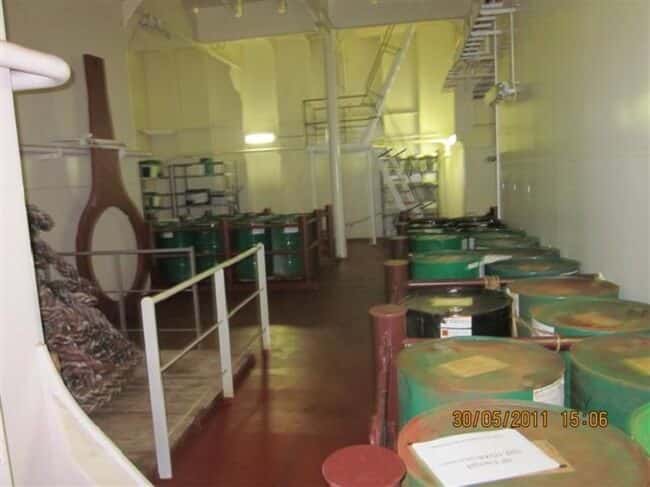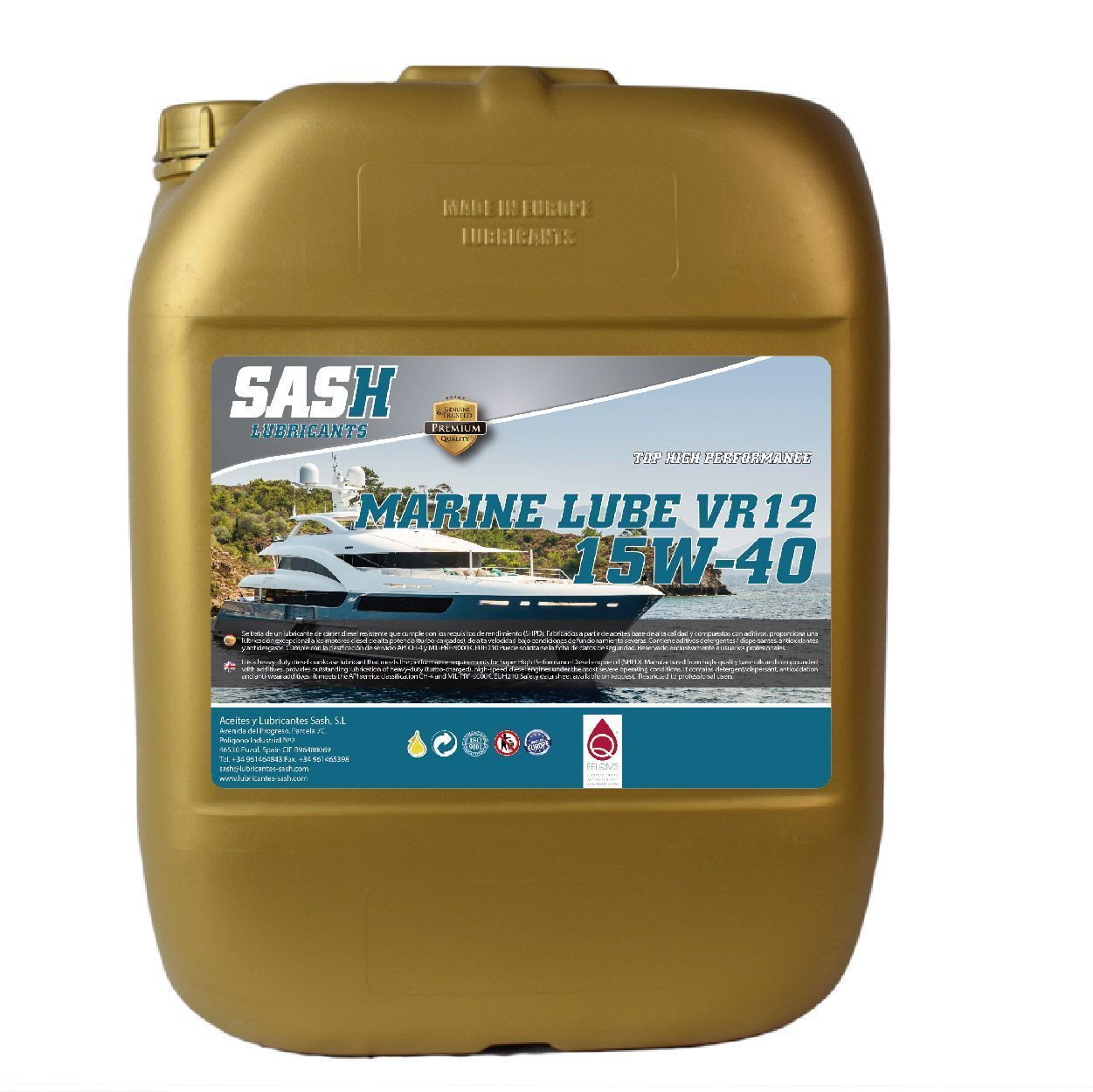Marine lube oil is a lubricating oil specifically designed for use in marine engines and machinery. It helps reduce friction and wear, ensuring smooth operation and extending the lifespan of the equipment.
Marine lube oil is formulated to withstand the harsh conditions of marine environments, including high temperatures, heavy loads, and exposure to water and salt. It provides essential lubrication to various components such as pistons, bearings, gears, and valves, allowing them to move freely and efficiently.
Regular maintenance and proper use of marine lube oil are crucial for the optimal performance and reliability of marine engines and machinery, minimizing downtime and costly repairs.
Introduction To Marine Lube Oil
Marine Lube Oil is a critical component in the smooth operation of marine engines. Understanding its essential qualities and key functions is crucial for optimal performance and longevity.
Essential Qualities
Marine lube oil must have high viscosity and thermal stability to withstand the harsh conditions of marine engines.
Key Functions
- Lubrication: Reduces friction and wear between moving engine parts.
- Cooling: Helps dissipate heat generated during engine operation.
- Cleaning: Removes contaminants and deposits to maintain engine cleanliness.
Composition Of Marine Lube Oils
Marine lube oil, also known as marine lubricating oil, is a vital component in ensuring the smooth operation and longevity of marine engines. The composition of marine lube oils plays a crucial role in maintaining the performance and reliability of marine machinery, especially in demanding maritime environments.
Base Oils And Additives
Base oils are the primary components of marine lube oils, providing the lubricating properties necessary for reducing friction and wear within the engine. These base oils are often derived from mineral or synthetic sources and serve as the foundation for the formulation of marine lube oils. In addition to base oils, marine lube oils contain a precise blend of additives. These additives are carefully selected to enhance the lubricating properties, improve thermal stability, prevent oxidation, and protect against corrosion, ensuring optimal performance and longevity of marine engines.
Synthetic Vs. Mineral Oils
When it comes to marine lube oils, the choice between synthetic and mineral oils is a crucial consideration. Synthetic oils, produced through advanced chemical processes, offer superior thermal stability, enhanced lubricity, and improved resistance to oxidation and thermal breakdown. On the other hand, mineral oils, derived from naturally occurring crude oil, provide excellent lubricating properties and are often more cost-effective. The decision to use synthetic or mineral marine lube oils depends on factors such as engine design, operating conditions, and manufacturer recommendations.
Types Of Marine Lubricants
Marine lubricants play a critical role in the smooth operation of marine engines and machinery. There are several types of marine lubricants that serve specific purposes to ensure the efficient functioning of various components. Let’s explore the different types of marine lubricants in more detail.
System Oils
System oils are specifically designed to provide lubrication and protection to the various systems within a marine vessel. These oils are formulated to withstand the harsh operating conditions and protect against corrosion and wear.
Cylinder Oils
Cylinder oils are essential for lubricating the cylinders in a marine engine. They help to reduce friction, minimize wear, and ensure optimal performance of the engine. The viscosity and additive package of cylinder oils are tailored to the specific requirements of marine engines.
Other Specialty Lubricants
In addition to system and cylinder oils, there are other specialty lubricants used in marine applications. These include oils for stern tubes, thrusters, wire ropes, and hydraulic systems. Each of these lubricants is formulated to meet the unique demands of the equipment and systems they are designed for.

Credit: www.marineinsight.com
Importance In Engine Performance
Marine lube oil is a vital component in ensuring the optimal performance and longevity of marine engines. Its significance in engine performance cannot be overstated, as it plays a crucial role in reducing friction and wear, as well as in heat dissipation.
Reducing Friction And Wear
Marine lube oil acts as a protective barrier between moving parts in the engine, reducing friction and minimizing wear and tear. This results in smoother operation and extends the lifespan of the engine components.
Heat Dissipation
Effective heat dissipation is essential for preventing engine overheating and maintaining operational efficiency. Marine lube oil facilitates the transfer of heat away from critical engine parts, ensuring optimal temperature regulation and overall performance.
Impact On Marine Ecosystems
Marine lube oil plays a vital role in the smooth operation of marine engines, but its impact on marine ecosystems is concerning. Improper disposal of used lube oil can lead to pollution, harming marine life and disrupting delicate ecosystems. Proper handling and recycling of marine lube oil are essential to mitigate environmental damage.
Environmental Concerns
Marine lube oil is an essential component for the smooth operation of ship engines. However, its usage has a significant impact on marine ecosystems. The discharge of used lube oil into the sea can lead to environmental degradation, which can pose a threat to marine life. The oil can accumulate on the surface of the water, leading to the formation of a thick layer that can block sunlight and reduce oxygen levels in the water. This can harm the marine plants and animals, which can lead to the death of many species.
Biodegradable Lube Oils
To mitigate the environmental concerns associated with marine lube oil, biodegradable lube oils have been developed. These lube oils are made from natural and renewable resources, which makes them environment-friendly. Biodegradable lube oils have low toxicity and are readily biodegradable, which means they break down easily in the presence of natural microorganisms. This reduces the risk of pollution and environmental damage, making them a preferred choice for the marine industry. In conclusion, the impact of marine lube oil on the environment is a significant concern, and the use of biodegradable lube oils can help reduce the environmental impact. The marine industry must take steps to ensure that marine ecosystems are protected and preserved for future generations.

Credit: www.valvolineglobal.com
Regulations And Standards
Regulations and standards play a crucial role in the quality and performance of marine lube oil.
International Maritime Organization (imo) Guidelines
The IMO sets global standards for the maritime industry to ensure safety and environmental protection.
Iso Specifications
ISO specifications define the quality requirements and performance characteristics of marine lube oil.
Choosing The Right Lube Oil
Marine lube oil is crucial for the smooth operation of marine engines. It provides lubrication, cooling, and corrosion protection. Selecting the appropriate lube oil is essential for optimal engine performance and longevity.
Viscosity Requirements
Correct viscosity is vital for the oil to flow smoothly through the engine components. Consult the manufacturer’s guidelines for the recommended viscosity range.
Compatibility With Engine Type
Ensure the lube oil is compatible with the specific engine type to prevent damage and ensure efficient lubrication.

Credit: www.lubricantes-sash.com
Maintenance And Monitoring
Marine lube oil is a vital component for machinery on ships, ensuring proper lubrication for smooth operations. Maintenance and monitoring of marine lube oil quality and levels are crucial to prevent equipment breakdowns and extend machinery lifespan. Regular checks and analysis help optimize performance and reduce downtime.
Maintenance and Monitoring of Marine Lube Oil is a crucial aspect of ship maintenance. The performance and longevity of the engine depend heavily on the quality of lubricant used. Regular monitoring and maintenance ensure optimal performance and avoid costly repairs. In this section, we will discuss the best practices for Lube Oil Change and Lube Oil Analysis.
Lube Oil Analysis
Regular Lube Oil Analysis helps detect any issues with the engine at an early stage. It involves sampling the oil and analyzing it in a laboratory to determine any signs of wear, contamination, or degradation. The analysis report provides detailed information about the engine’s condition and helps identify potential issues before they cause significant damage. It also helps determine if the oil needs changing or if it can continue to be used.
Best Practices For Lube Oil Change
Changing the Lube Oil is a crucial part of engine maintenance. It involves draining the old oil and replacing it with fresh oil to ensure optimal engine performance. Below are some best practices for Lube Oil Change:
- Follow the manufacturer’s recommendations for oil type and viscosity
- Ensure the engine is at operating temperature before draining the oil
- Drain the oil while it’s warm to allow for better flow and to remove any contaminants
- Replace the oil filter with every oil change
- Use a clean funnel to pour the new oil into the engine
- Check the oil level and add more if necessary
- Dispose of the used oil in an environmentally friendly manner
Regular maintenance and monitoring of Marine Lube Oil is crucial for optimal engine performance and longevity. Lube Oil Analysis helps detect any issues at an early stage, and Best Practices for Lube Oil Change ensure proper lubrication of the engine. Follow these practices to avoid costly repairs and keep the engine running smoothly.
Innovations In Marine Lubrication
Marine lube oil is a specialized lubricant used in marine engines to reduce friction and wear. Innovations in marine lubrication have led to the development of eco-friendly and high-performance lubricants that enhance engine efficiency and reduce emissions.
Marine lube oil is an essential component in the smooth operation of marine engines and machinery. Advancements in marine lubrication have significantly improved the performance and sustainability of marine operations. In this article, we’ll explore the latest innovations in marine lubrication, including advancements in additive technology and sustainable alternatives.
Advancements In Additive Technology
The latest advancements in additive technology have greatly improved the performance and efficiency of marine lube oil. The use of advanced additives, such as detergents, dispersants, and anti-wear agents, can effectively reduce engine wear and extend the life of the lubricant. These additives also help to minimize deposits and keep the engine clean, reducing the risk of breakdowns and costly repairs.
Sustainable Alternatives
Sustainability is a major concern in the marine industry, and the development of sustainable alternatives to traditional marine lube oil is a major breakthrough. Bio-based lubricants, such as those derived from vegetable oils, have been proven to be more environmentally friendly and sustainable than traditional lubricants. These bio-based lubricants are biodegradable, non-toxic, and can be safely disposed of, reducing the environmental impact of marine operations. In conclusion, the latest innovations in marine lubrication have greatly improved the performance and sustainability of marine operations. Advancements in additive technology and sustainable alternatives have significantly reduced engine wear and extended the life of marine lube oil. By adopting these innovations, the marine industry can achieve greater efficiency and sustainability, while reducing its environmental impact.
Conclusion
Marine lube oil plays a vital role in ensuring the smooth operation and longevity of marine engines and machinery. Its primary function is to reduce friction, prevent wear and tear, and provide optimal lubrication in harsh marine conditions. By choosing the right marine lube oil and adhering to proper maintenance practices, ship owners and operators can enhance efficiency, protect their investments, and contribute to a sustainable maritime industry.
Read More:


